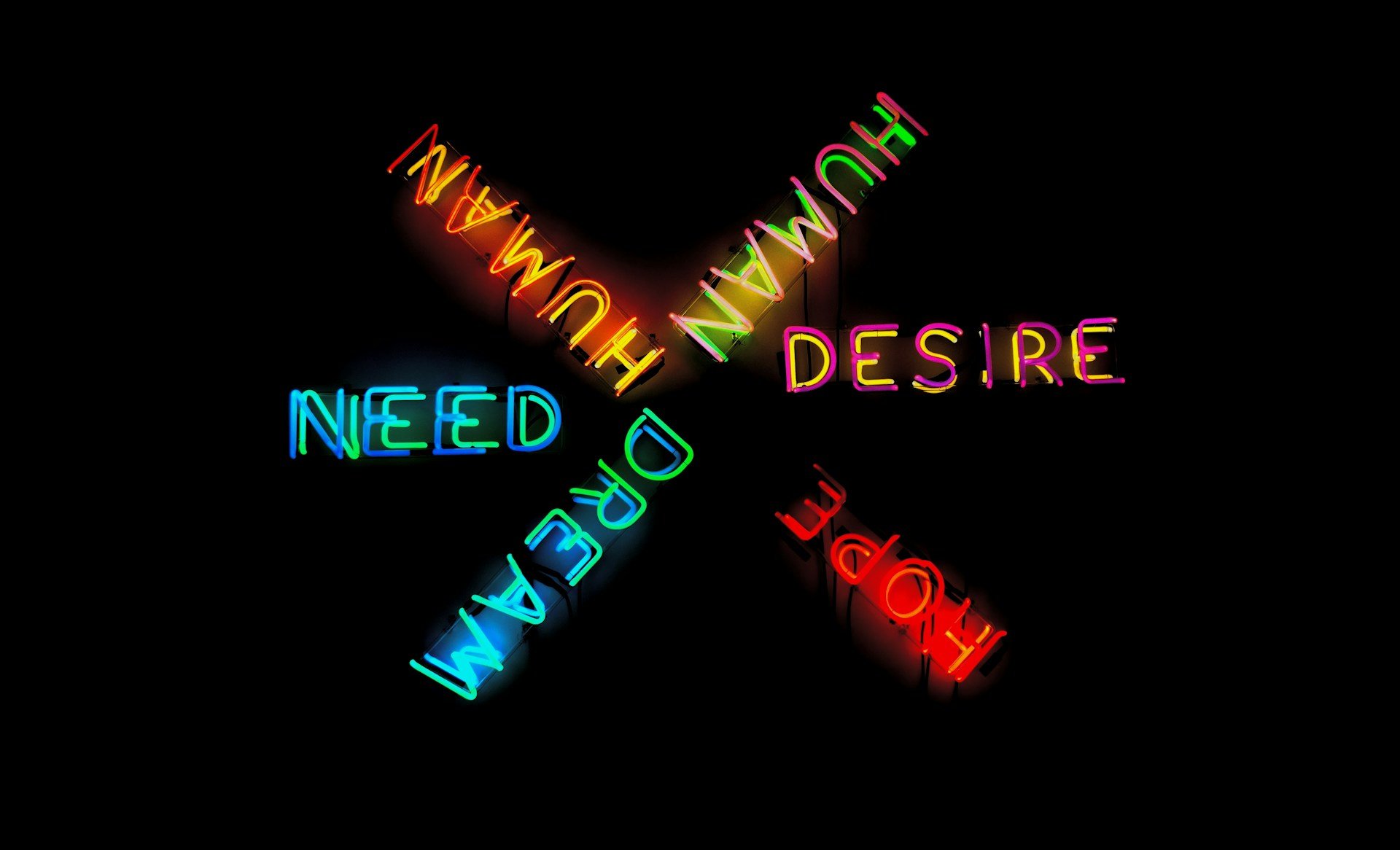Photo by Alexis Fauvet on Unsplash
Longing and belonging are two deeply human experiences that shape our emotional and psychological world. Although they are related in the sense that both involve a connection to something or someone, they are fundamentally different in their nature and impact. It’s helpful to understand the differences between the two, and how they could manifest in our lives, so that we can live a more fulfilled and authentic life.
Longing
Longing is a deep desire for something absent or unattainable. It’s characterised by a sense of incompleteness and yearning. This emotion can be directed towards various aspects of life, such as a place, a person/group, a time, or an ideal state of being.
It often brings about feelings of sadness, nostalgia, and sometimes even despair. It’s an emotion tied to absence and unfulfilled desires. It can lead to a state of constant yearning and dissatisfaction. While it can motivate us to pursue our passions, it can also result in a sense of perpetual incompletion and frustration.
Belonging
Belonging, on the other hand, is the feeling of being accepted and valued. The connection with a person, group, or place feels wholesome and meaningful. It’s a sense of fitting in and being an integral part of something larger than ourselves. It fulfils the basic human need for social connection and acceptance.
It’s typically associated with positive emotions such as happiness, contentment, and security. It provides a sense of fulfilment and peace. A strong sense of belonging enhances mental well-being, fostering self-esteem and reducing feelings of loneliness and isolation. It promotes psychological resilience and overall life satisfaction.
Manifestations of Longing
Longing for the past: Longing can often appear as a nostalgic yearning for the past, whether it’s a place we loved, a lost relationship – whether it’s through a breakup, change of location, or bereavement, or perhaps it’s for our younger years – our old self or old times.
Longing for the ideal future: We may have plans or ideas about how we want our lives to be in the future. Maybe we long for an ideal home or a job, a happy family, the perfect partner, or a desired lifestyle.
Longing for what could have been: This could be longing for a different kind of friendship, family, or partner than the one we have. It could also be longing for a career or financial/social status we feel we should have had. It involves dreaming about what could have been and feeling incomplete.
Longing to belong: It might go deeper than longing for someone, somewhere, something, or a different time in life. It can be a deep-rooted sense of longing to be accepted and loved, to be connected to something meaningful, to feel worthy and secure in our place in the world.
When we long for something, we become disconnected from the present.
This disconnection can lead to unfulfilment and resentment. It can lead to low moods, irritability, or depression. The impact of being stuck in the state of longing can go unnoticed, resulting in further disconnection, depressive episodes, social anxiety, and a distorted worldview.
In a positive light, longing can drive us to achieve our goals and dreams, pushing us to strive for what we deeply desire.
Manifestations of Belonging
In relationships, a sense of belonging is most commonly felt within close relationships (though not always), where we feel loved and accepted for who we are, and mistakes or fractures can be forgiven and repaired. Feeling belong creates a sense of safety – that it’s OK to be our true selves and that we’re not alone. In a community, whether it’s a neighbourhood or a workplace, feeling like we belong provides a sense of purpose and connection. We feel valued, supported, and part of a larger, connected system. It’s worth noting that this isn’t limited to the physical world; many people find a strong sense of community online as well.
When it comes to cultural belonging, adult third-culture kids and long-term expats may find it more challenging and could experience conflicts about their cultural identity, a sense of ‘home’ or their ‘tribe’. While having a clear cultural identity gives us a sense of pride and connection to our heritage and traditions, it’s possible to feel connected to and belong to more than one culture. ‘Home’ may be experienced more as an inner felt sense rather than a physical place, and the tribe may be an eclectic mix of people in multiple locations.
Addressing Longing
Acknowledgement: Recognising and accepting feelings of longing is the first step – accepting it with compassion and without judgement.
Self-enquiry: Turn your attention inward and really listen to what you long for. Understanding your sense of longing can provide clarity and direction towards fulfilling your deeper or hidden desires. Be curious whether what you long for is true, good, and kind to you, or if it’s the idea of a version of it that’s been occupying your mind.
Action: Taking steps to fulfil your desires, whether through seeking connection and support, setting goals, or making some changes in your life, can help reduce the negative aspects of longing. It’s not to say that it will be easy or feel comfortable. Fears and doubts may crop up – naturally. Be gentle with yourself, and be mindful of your inner critics who may try to keep you safe from disappointment and painful emotions. You can choose to listen, accept, soothe, and negotiate with them.
Acceptance: Sometimes, it’s important to accept that certain longings may never be fully satisfied. We can grieve and mourn for what was or could have been, and find peace with this reality. More importantly, accept that what you’ve been longing for may not actually be what you want or need, and let it go.
Fostering Belonging
Self-Acceptance: Belonging starts with accepting ourselves. When we accept and value ourselves, we are more likely to find and build genuine connections with others.
Build Connections: Actively seek out and nurture relationships that are good and true to you. Pay attention to the authenticity and nature of these connections – ensure that they are not limiting or damaging to you. It’s OK to choose, and it’s OK to start over if needed. Remember that belonging creates the feeling of being accepted, valued, fulfilled, and loved as your authentic self. Although you may adapt to different situations, your values and the true essence of you remain.
Be Vulnerable: To experience a genuine sense of belonging, we need to open up about our true feelings – the high, low, and uncertain ones. It can invite deeper understanding and strengthen our connections with others when we show our genuine selves.
Find Courage: It’s not always easy to foster belonging, know that you’re not alone if you’re feeling unsure and your critical voice pops up (once again) to keep you safe. It may try to tell you things like – you’re not good enough, too much, too boring, or too complicated. Remember that not everyone is right for us, and we are also not going to be right for everyone, and that’s OK. You can give them space to be without running away with them. Tap into your inner courage… when have you been able to do/accomplish something despite all your anxieties and fears? You can do it again. Courage is when we do something despite the fear, it’s not about doing it without fear.
“True belonging only happens when we present our authentic, imperfect selves to the world; our sense of belonging can never be greater than our level of self-acceptance,” Brené Brown
I remember when I first started my counselling training, I longed to be like some of the trainers and other counsellors I met. They seemed calm, gentle, softly spoken, and wise. I thought I could never be like them, and I felt like I didn’t belong in the counselling world. But I knew the kind of life I wanted and my goals were set, I went ahead with the training anyway. As my self-acceptance grew, I gained the courage to show up as myself more — in all my different shades. From that place, I formed connections with people who were both similar and different to me – both felt good, true, and kind to me. I realised then that I didn’t need to be the same as my previously idealised version of a counsellor. I can be myself and belong in the counselling world – but in a way that feels authentic to me.
Longing and belonging are powerful emotions that significantly influence our lives. Longing involves a deep desire for something that’s missing, while belonging provides a sense of connection and acceptance. Understanding these differences can help us navigate our emotional landscapes and foster a more fulfilling and connected life. By addressing our longings and actively nurturing a sense of belonging, we can achieve greater emotional balance and well-being.
I’m Star, an experienced online & outdoor counsellor, if you would like to find out more about how therapy can help you, please don’t hesitate to contact me for a free 15-minute intro chat.



